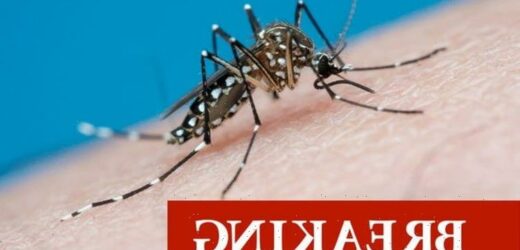Virus expert warns of Zika virus implications during pregnancy
We use your sign-up to provide content in ways you’ve consented to and to improve our understanding of you. This may include adverts from us and 3rd parties based on our understanding. You can unsubscribe at any time. More info
The Zika virus (ZIKV) infection has been traced to a resident of Kerala state in southwest India. According to the WHO’s health officials, this is the first Zika case confirmed in Kerala. The infection was confirmed in a laboratory using RT-PCR testing in National Institute of Virology (NIV) Pune.
A blood sample was collected from a 24-year-old woman in her third trimester of pregnancy.
The woman was admitted to a private hospital on June 28 this year.
She experienced symptoms of fever, headache and general rash.
Initital tests for dengue virus (DENV) and chikungunya virus (CHIKV) were negative.

The WHO said in a statement: “The woman delivered on July 7, she was reportedly in good health and there were no apparent birth defects in the newborn.
“In the three months before delivery, she had resided in Trivandrum district not having travelled during that period.
“Among her close contacts, her mother reported having fever and similar symptoms one week before ZIKV confirmation in her daughter.”
Health officials have since tested 19 other people, including hospital staff and patients who experienced symptoms of fever, myalgia, arthralgia and petechial lesions in May this year.

The collected blood samples were shipped off to a laboratory for testing, where 13 came back positive for Zika.
The Zika virus is primarily transmitted by the Aedes mosquito, which bites during the day.
Typical symptoms include fever, rash, conjunctivitis, muscle and joint pain, as well as malaise and headache.
Symptoms last anywhere between two and seven days, though most infections do not develop symptoms.
Pregnant women are particularly at risk as infection can lead to microcephaly and other defects known as congenital Zika syndrome.
According to the WHO, Zika infections have also been associated with other complications such as preterm birth and miscarriage.
This is a breaking story. Refresh the page to see more.
Source: Read Full Article


